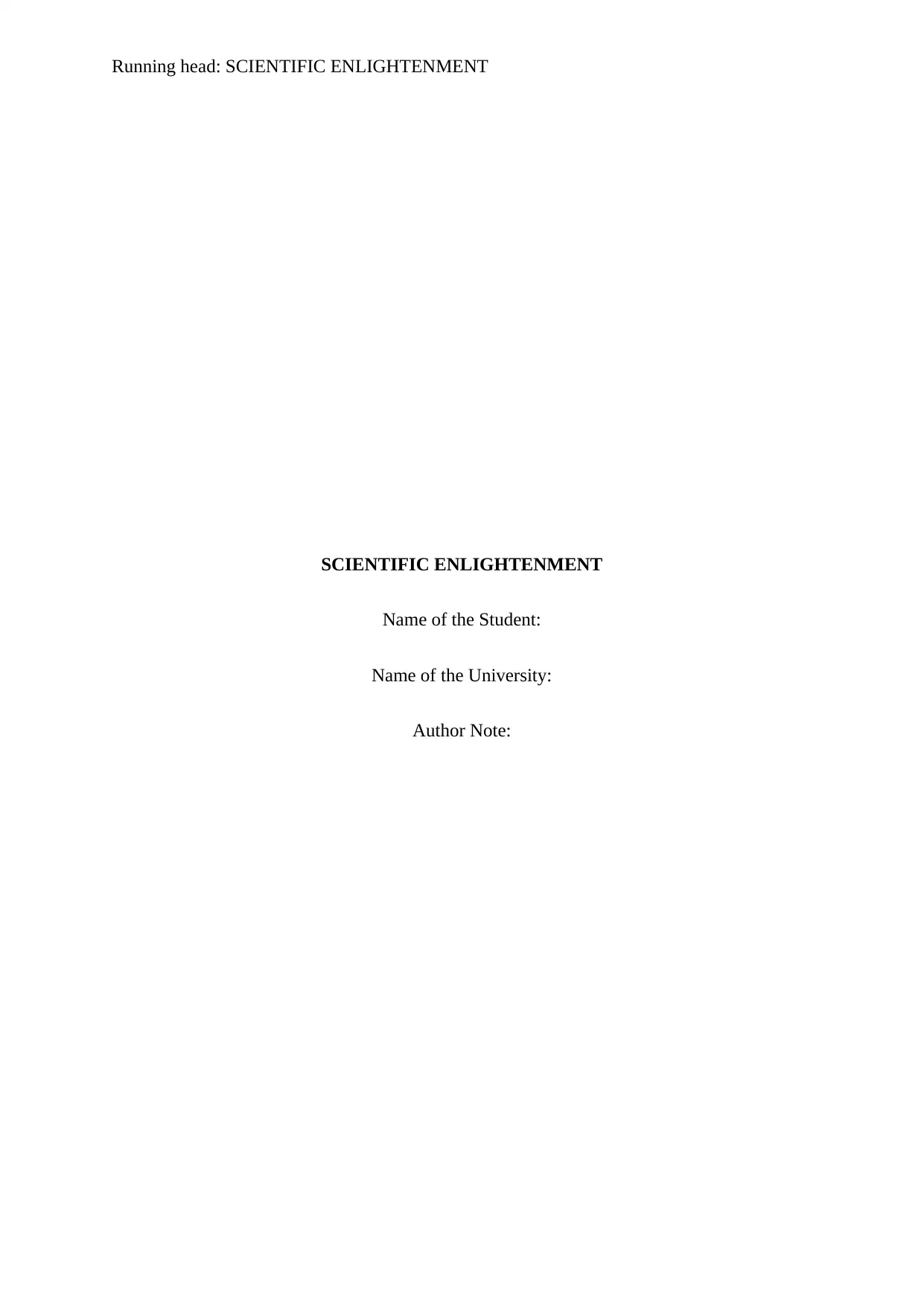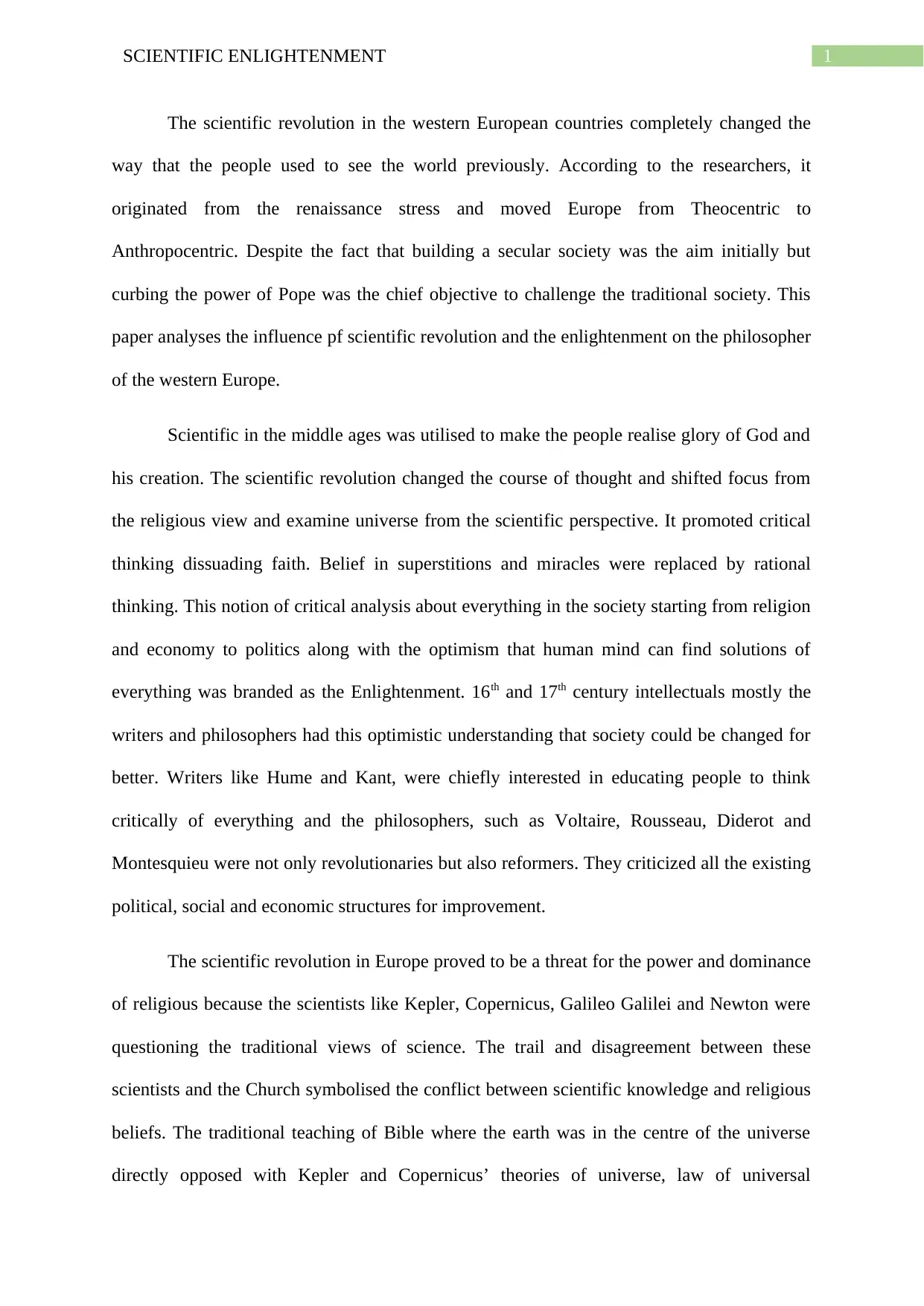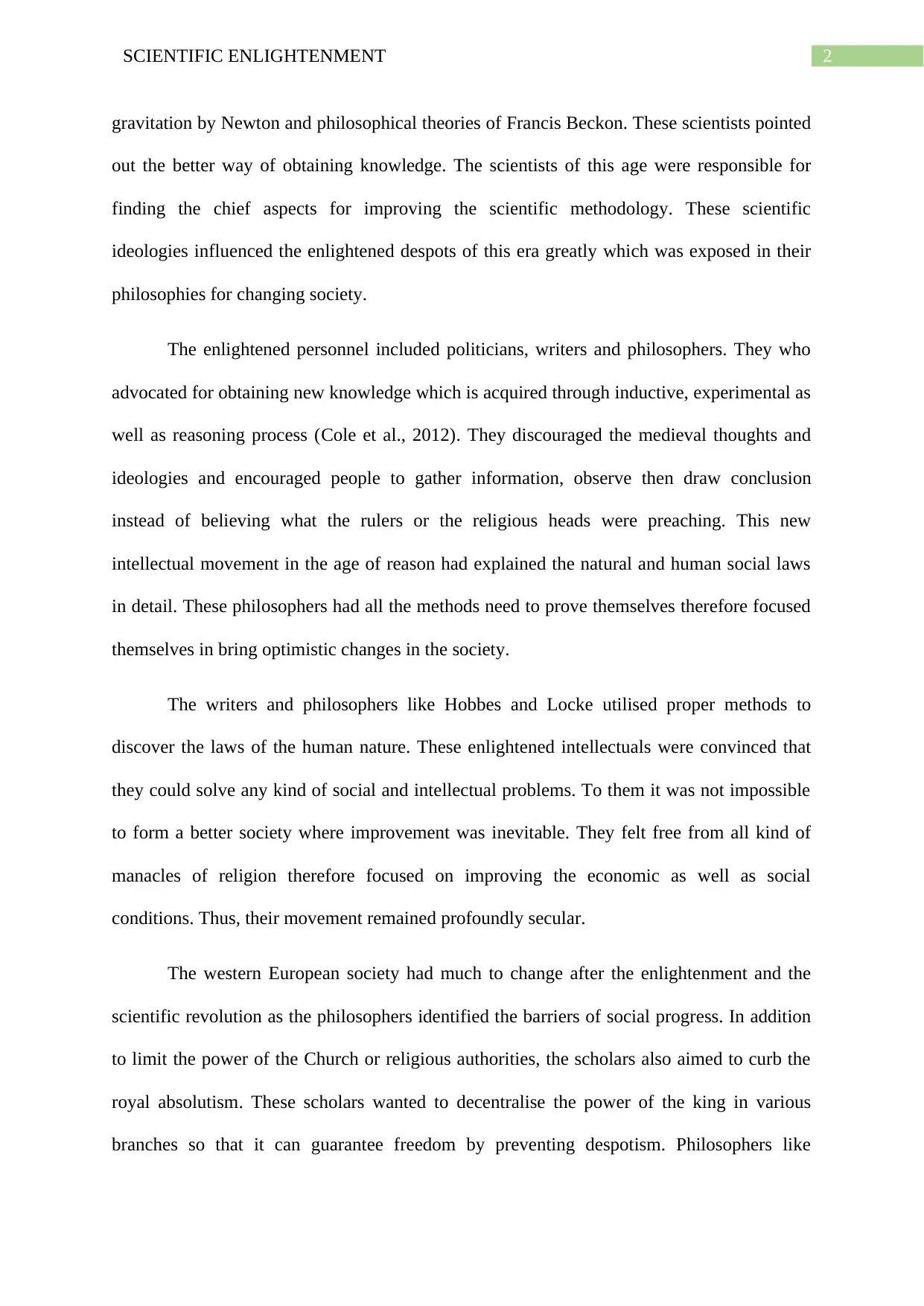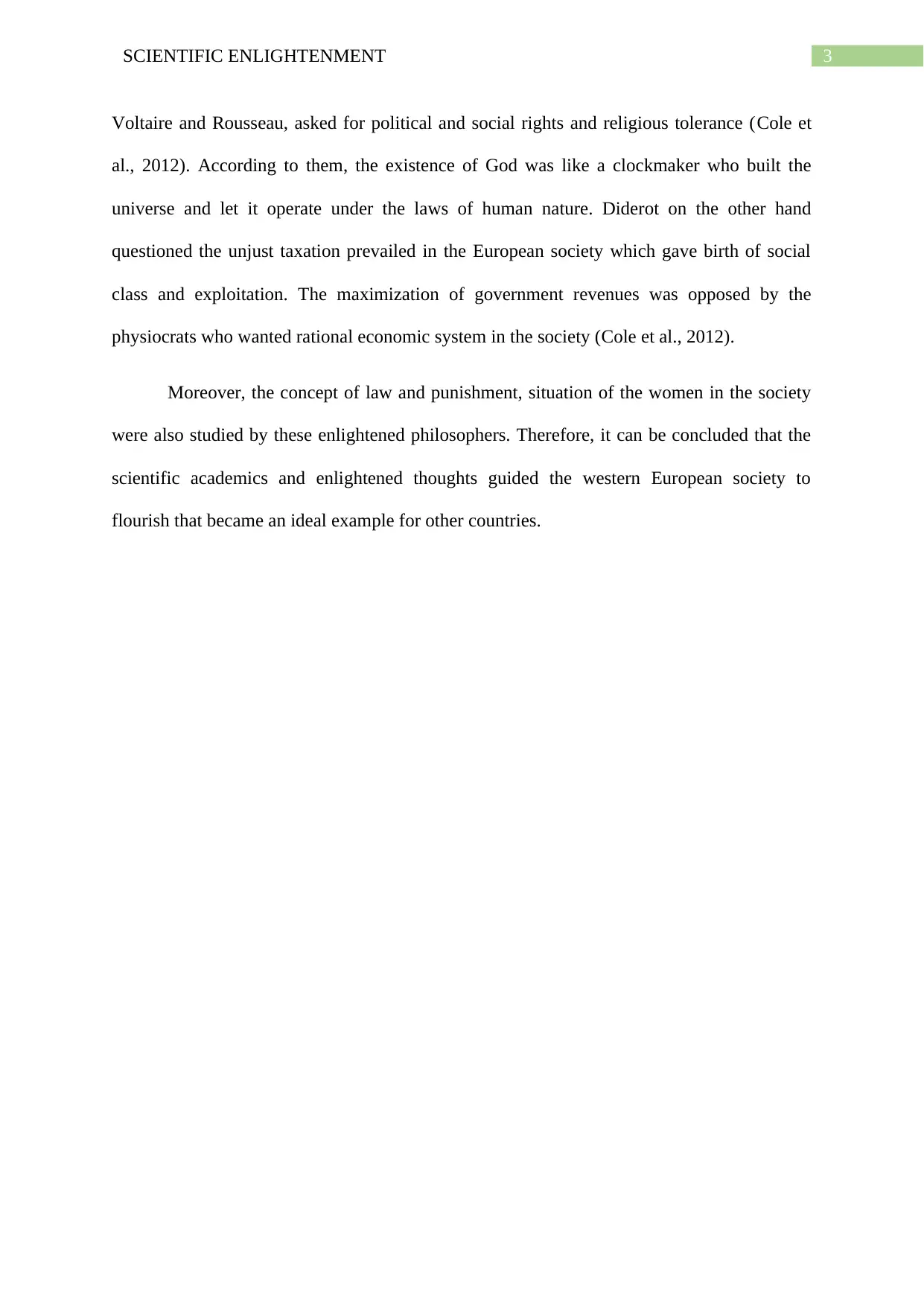Analysis of Scientific Revolution and Enlightenment in Western Europe
VerifiedAdded on 2020/05/16
|5
|880
|139
Essay
AI Summary
This essay examines the profound influence of the Scientific Revolution and the Enlightenment on Western European society. It begins by highlighting the shift from a Theocentric to an Anthropocentric worldview, driven by the Renaissance and the desire to challenge the power of the Church. The paper analyzes how the scientific revolution, with its emphasis on empirical observation and critical thinking, undermined religious dogma and paved the way for the Enlightenment. Key figures like Hume, Kant, Voltaire, Rousseau, and others are discussed, along with their critiques of existing political, social, and economic structures. The essay explores the conflict between scientific discoveries and religious beliefs, and the impact of enlightened despots. It further outlines the philosophers' focus on human nature, the pursuit of a better society, and the secularization of thought. The essay concludes by emphasizing the lasting impact of these movements on Western Europe and their influence on other countries. The essay also mentions the works of Cole et al. (2012) for referencing the ideas and arguments. This essay is a valuable resource for students studying history and the development of Western thought.
1 out of 5










![[object Object]](/_next/static/media/star-bottom.7253800d.svg)